#Investments
What's the Chinese Electric Car Startup Survival Rate? One Percent, An Investor Predicts
China has bit of a gambling problem when it comes to electric car manufacturers, though it should probably be referred to as a “gambling solution.”
The country dumps vast sums of money into hundreds of EV startups, effectively hedging its bets by placing chips on absolutely everyone. With $15 billion already invested, the nation intends to put another $47 billion toward the cause — plus whatever funding investment firms decide to contribute. While the strategy has definitely stimulated the economy, created jobs, and supersized the industry, there’s growing concern that creating a battle royale between startups could blow up in China’s face.
Even if it doesn’t, there’ll still be a bunch of automakers eating each other until only a handful remain. Previous estimates had that number riding around 5 percent of the whole. But NIO Capital, the Chinese investment firm that’s already invested a gratuitous amount of funds into advanced automotive tech, claims the actual number will be far lower — probably around 1 percent.
QOTD: Which Newer Vehicles Will End up as Overpriced "Collectibles"?
There are a lot of charlatans on the internet, and some members of this special category of people want you to purchase their car as an investment. Anyone who’s browsed the sale ads knows the type of person I’m referring to here:
“No joyrides!”
“Very rare, collectible car!”
“Special opportunity!”
“No lowballers, I know what I got.”
Of course, what they’ve usually “got” is a vehicle priced firmly in loony bin territory. Today we want to know: In the near future, which newer vehicles will be worth far less than what these opportunistic sellers are asking?
GM Claims It Will Start Manufacturing Autonomous Cars Next Year
General Motors has announced it will begin manufacturing autonomous vehicles by 2019. Since purchasing Cruise Automation in 2016, GM has invested heavily into self-driving cars. However, its Chevrolet Bolt-based Cruise AV has only served as a testbed for the technology. That will change next year when the Orion Township assembly plant in Michigan starts building examples for commercial use.
If so, that would make General Motors the first company to sell an autonomous vehicle. However, it’s not entirely clear if that’s the ultimate goal. Thus far, GM has only said the autos will enter into a “ride-sharing environment” where the vehicles can be managed in a fleet — perhaps something akin to Uber.
Obviously, the analogy is as accurate as it is unfortunate. Uber recently suspended autonomous testing after one of its vehicles fatally struck a pedestrian earlier this week. While GM’s product planning can hardly be faulted for the goings-on at another company, the collision could see the general public wonder if production Cruise AVs are ready to take over the road.
Faraday Future Claims It Rustled Up $1 Billion in Funding and a New CEO
Faraday Future is the real-life equivalent of a franchised movie monster. While not a physical manifestation of evil, destined to rip apart promiscuous teens in increasingly elaborate ways, it does possess the unique ability to keep coming back every time you thought it had finally been destroyed.
Despite having lost a factory in Nevada, a chief financial officer, chief technology officer, lead designer, head of manufacturing, Formula E team, and the public’s trust (you can add bankruptcy rumors to the mix, too), LeEco chairman Jia Yueting now claims the company has suddenly managed to raise $1 billion in funding.
Jason Voorhees, eat your heart out.
Ford CEO Outlines New Vehicle Development Plan, Shifts Investments, Trims Fat (and Models)
After much speculation, Ford CEO Jim Hackett has finally outlined where his company’s dollars will be spent in the foreseeable future. Hackett spent his summer performing what Ford called a “four-month deep dive” into the company’s strategy and business operations to see what changes needed to be made. His conclusions? This may surprise a few readers, but Ford will continue building and selling automobiles.
Alright, that isn’t a bombshell, but the brand is trying to frame itself as the Ford you’ve always trusted while also letting everyone know it’s still a “mobility company” with its eyes fixed on tomorrow. Without the public relations veneer, that plan translates into a reduced number of production models and trims, more money for electrification R&D, less for internal combustion engines, and a significant reduction in material costs.
Hackett’s address also served to reassure the nervous shareholders who ousted his predecessor, Mark Fields. Ford’s stock declined more than 30 percent during Fields’ tenure and many complained that his vision of transitioning from a traditional automaker to a Silicon Valley look-alike was partly to blame. Hackett did everything in his power to ease those fears.
“We’re going to be in the vehicle business moving both people and goods. Some myth about not being in the car business is gone,” Hackett told Wall Street.
The Interstate Battle Royale for Mazda and Toyota's Super Factory
The funny thing about job creators is that they don’t always, you know, create any jobs. So, when a business lets slip that it might have 4,000 positions on offer in the near future, every state with an unemployment rate higher than zero takes notice.
Mazda and Toyota’s joint factory — codenamed Project Mitt — is one such example, and now over a dozen U.S. states are simultaneously competing for the opportunity to host the $1.6-billion factory and the thousands of direct and indirect jobs it will yield.
When the Japanese automakers publicly revealed their cooperative venture a couple of weeks ago, they made it clear they had not yet picked a site — sending economic development offices into a frenzy. But what locale will emerge victorious has a lot to do with what the region can offer the manufacturer, including potential tax incentives, tempting job training programs, and investments into infrastructure.
An affordable and abundant workforce is also desirable — an element that distinguishes many states from one another. But no single area has everything on offer, leaving the final decision of where to build up in the air.
Daimler, BAIC Investing $735 Million Into Chinese EV Production Pretty Much Out of Necessity
Daimler AG is dumping half of a 5 billion yuan sum, or 735 million dollars, into China as part of a joint venture with BAIC Motor Corp. Together, the companies plan to establish the groundwork for competent EV production in the region — meaning a good ol’ fashioned battery factory.
The bill is split between the two firms, as China requires every foreign automaker to partner with a domestic one to do business within the country. The new factory will be a product of Beijing Benz Automotive, a blandly named limited liability company created to further Mercedes’ interest within the country and bolster its EV production capabilities globally.
Toyota Vows to Stop Being Such a Dinosaur, Muses Partnerships as a Shortcut
Despite being Japan’s biggest automaker, Toyota has lagged behind many of its rivals in terms of cutting-edge technology. Most major car manufacturers have already begun developing self-driving vehicles, with some going so far as to make strategic partnerships with companies specializing in the applicable technologies. By contrast, Toyota has a strong R&D program but never saw fit to pursue autonomous development or battery-electric vehicles quite so aggressively as General Motors or Renault-Nissan, for example.
Toyota President Akio Toyoda has now admitted that may have been a mistake. At the company’s annual shareholders meeting on Wednesday, he promised the automaker would become more committed to achieving technical developments. Toyoda didn’t bring forward a concrete strategy but conceded the spending of additional capital would likely play a role — and an alliance or two isn’t out of the question.
Is Carvana's Ex-Con Co-Founder to Blame for Its Fading IPO?
Carvana, the company we previously razzed for its innocuous multistory automotive contrivances, has suddenly found itself facing some legitimate problems. The car dealer is now famous for two things: vehicular vending machines and a majority shareholder with criminal ties to a major savings and loan scandal — who also happens to be the father of the business’ CEO and co-founder.
The organization is also facing a share price that has dipped 40 percent since its April 27 IPO. However, that can likely be blamed on an over-saturated used car market. Secondhand cars are incredibly affordable at the moment so, if you wanted to support Carvana or any other used vehicle vendor, now would be a good time. You just have to be alright with doing business with Ernie Garcia II, the ex-con investors are likely going to blame if the share price doesn’t bounce back.
Shenanigans: Toyota's 'Flying Car' Doesn't Fly and Isn't a Car
We need to have a candid discussion about flying cars. Automobiles and airplanes entered into the mainstream around the same time, and we’ve talked about combining them into a singular platform ever since. While nobody has successfully pulled it off, we keep acting like the technology is right around the corner. The closest we’ve gotten are the Terrafugia Transition and Pal-V One. However, both of those products make major on-road sacrifices, undergo a pre-flight metamorphosis, and require regular access to a runway. They’re still not representative of anything we’d consider a real car.
Lack of success hasn’t stopped automakers from dabbling in the field of aviation. Toyota has purchased Cartivator Resource Management in the hopes that its “flying car” expertise will yield a vehicle capable of lighting the torch at the 2020 Olympic games in Tokyo. Still, based on the firm’s progress to date, we can only imagine the attempt ending in a globally broadcast fiery disaster.
Front-drive Efficiency: Ford to Sink $350 Million Into New Transmissions
Despite news that Ford Motor Company has started making plans to scale back its workforce in North America and Asia, there are 800 Michigan-based employees who needn’t fear for their jobs — all thanks to commitments made in the company’s 2015 deal with the United Auto Workers. Ford confirmed on Friday that it will be investing $350 million into its Livonia Transmission plant.
Keeping its end of the bargain means the site will be safe from layoffs and may even bring aboard new employees, although the number of new hires is unclear. It’s assumed the majority of the 800 hourly positions will be filled by Ford dipping into its own staffing pool.
Fields Defends Ford's Honor in Tense Shareholders Meeting
As anticipated, Ford CEO Mark Fields was grilled today over his plans to improve the company’s waning fortunes by board members who had scheduled extra time to question him.
Hot topics at the annual meeting centered on why profits are falling, what is Ford doing about the market shift toward SUVs, and how the company’s colossal investments into technology are affecting its present-day financial situation. Ford has poured billions into self-driving vehicles and ride-sharing platforms as its traditional car business loses some ground to General Motors in a slowing U.S. market. Fields spearheaded Ford’s rebranding as a mobility company, but many have suggested this future-focus isn’t healthy for the brand.
Fields stuck to his guns, emphasizing that Ford was heading “aggressively but also prudently” into “the biggest strategic shift in the history of our company.”
Delphi Gets Its Own Spinoff, Core Focus Now on Autonomy and EVs
Automotive supplier Delphi announced plans on Wednesday to spin off all operations tied to internal combustion engines and focus solely on electric propulsion and autonomous vehicles.
The move boosted share prices while underscoring the problems facing the industry’s old guard. That’s not to suggest that internal combustion engines are going to vanish anytime soon, but the investors who fund their development seem progressively less interested in backing them. An interesting choice, considering EV-maker Tesla is valued well above a traditional manufacturer like Ford — despite not being nearly as profitable.
Delphi says it will spin off its $4.5 billion powertrain division into a separate publicly traded company by early 2018 and is considering a new name.
Ford's Confirms Canadian Jobs While Everyone Else Speculates Over a New Truck Engine
Ford Motor Co. seems to be making plans to announce the production of a new engine in Windsor, Ontario — or at least that’s the buzz from insider sources.
We already knew the venerable V10 the company manufactures for use in its trucks and cutaway incarnations of the Econoline would be ending production sometime within the next four years.
That successor is now believed to possess fewer cylinders, a larger displacement, and be named “the 7X platform.”
Ford Invests $1.2 Billion Into Its Michigan Facilities, But the Cash Isn't a Big Surprise
Ford Motor Company has announced that it will invest $1.2 billion into three Michigan facilities to strengthen its status among truck and SUVs manufacturers and to further enhance its role as a “mobility company.” Most importantly, the cash is needed if Americans ever want to get their hands on a Bronco or Ranger again.
Many of the investments are included in the automaker’s 2015 promise to pour nine billion dollars into its U.S. plants over the next several years. In an agreement with UAW made almost two years ago, Ford said it would pour $700 million into the Michigan Assembly plant, $150 million into the Romeo Engine plant, and $400 million for Flat Rock Assembly.
While these were not the only locations promised capital, Ford released an official statement that all three would see the promised amount — or better.



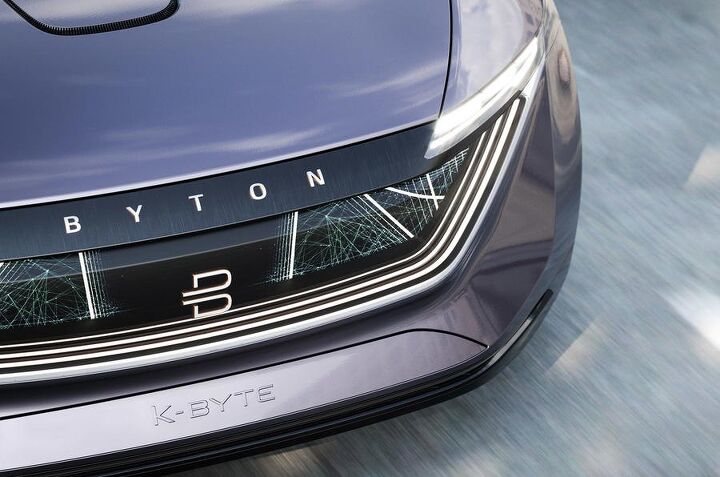



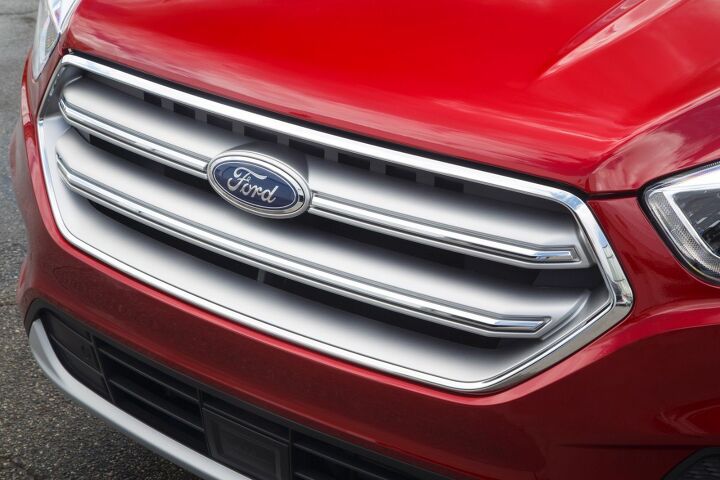
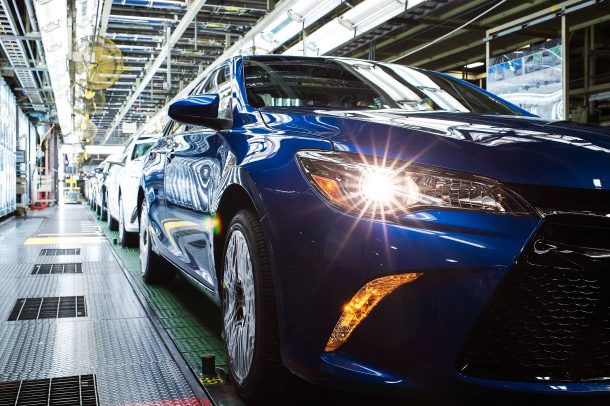



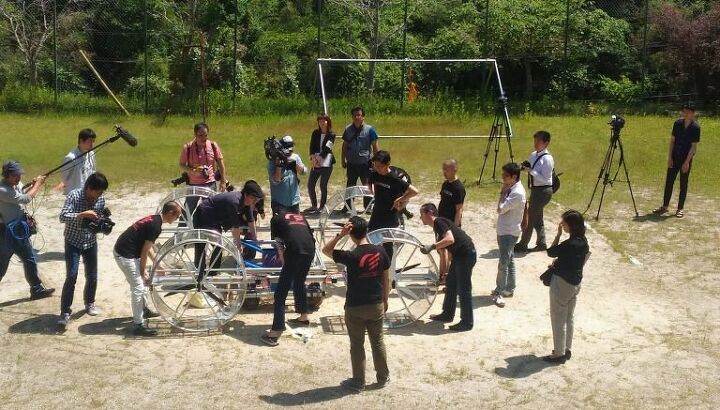
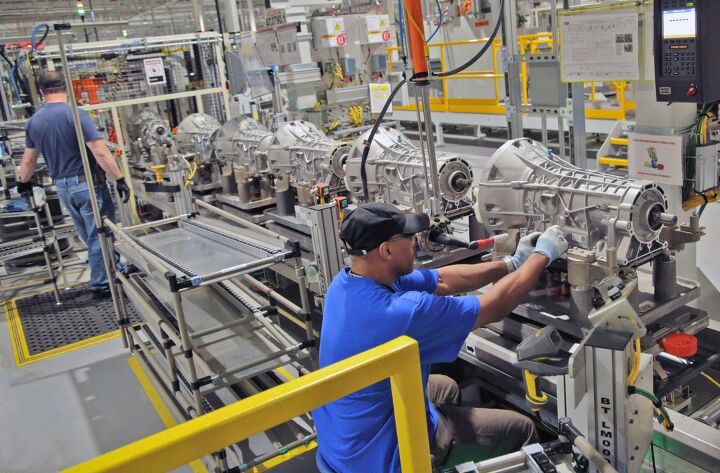
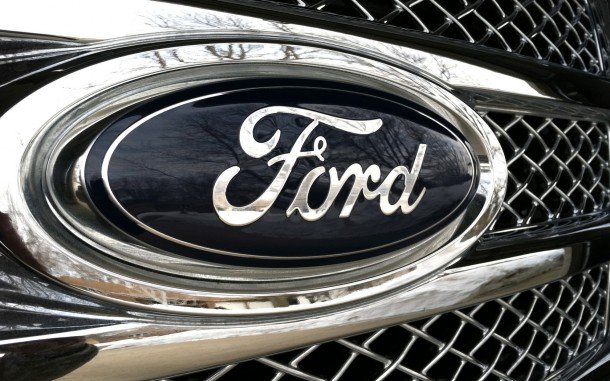
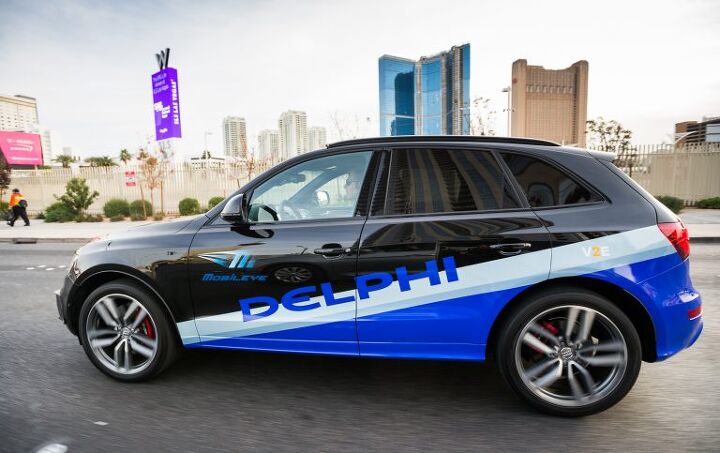
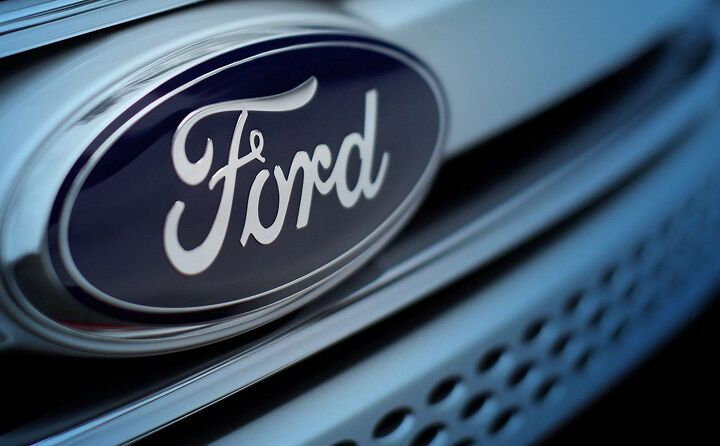
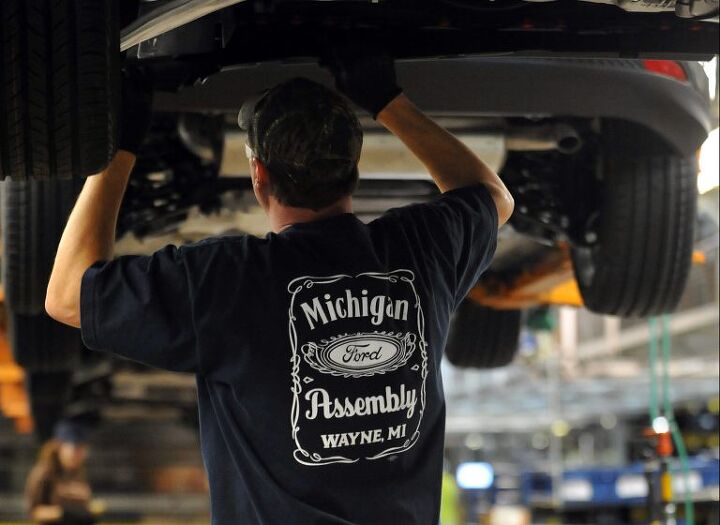












Recent Comments